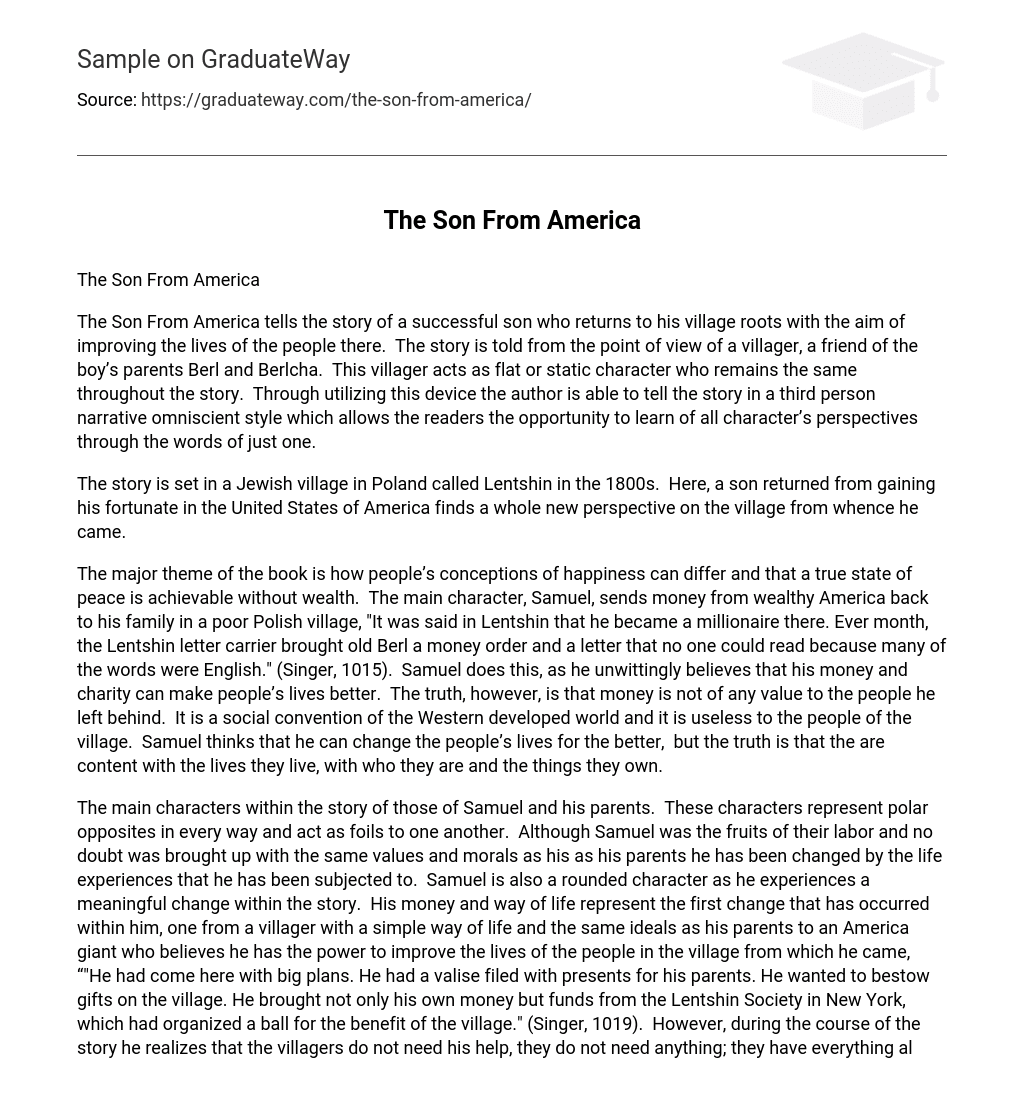The Son From America tells the story of a successful son who returns to his village roots with the aim of improving the lives of the people there. The story is told from the point of view of a villager, a friend of the boy’s parents Berl and Berlcha. This villager acts as flat or static character who remains the same throughout the story. Through utilizing this device the author is able to tell the story in a third person narrative omniscient style which allows the readers the opportunity to learn of all character’s perspectives through the words of just one.
The story is set in a Jewish village in Poland called Lentshin in the 1800s. Here, a son returned from gaining his fortunate in the United States of America finds a whole new perspective on the village from whence he came.
The major theme of the book is how people’s conceptions of happiness can differ and that a true state of peace is achievable without wealth. The main character, Samuel, sends money from wealthy America back to his family in a poor Polish village, “It was said in Lentshin that he became a millionaire there. Ever month, the Lentshin letter carrier brought old Berl a money order and a letter that no one could read because many of the words were English.” (Singer, 1015). Samuel does this, as he unwittingly believes that his money and charity can make people’s lives better. The truth, however, is that money is not of any value to the people he left behind. It is a social convention of the Western developed world and it is useless to the people of the village. Samuel thinks that he can change the people’s lives for the better, but the truth is that the are content with the lives they live, with who they are and the things they own.
The main characters within the story of those of Samuel and his parents. These characters represent polar opposites in every way and act as foils to one another. Although Samuel was the fruits of their labor and no doubt was brought up with the same values and morals as his as his parents he has been changed by the life experiences that he has been subjected to. Samuel is also a rounded character as he experiences a meaningful change within the story. His money and way of life represent the first change that has occurred within him, one from a villager with a simple way of life and the same ideals as his parents to an America giant who believes he has the power to improve the lives of the people in the village from which he came, “”He had come here with big plans. He had a valise filed with presents for his parents. He wanted to bestow gifts on the village. He brought not only his own money but funds from the Lentshin Society in New York, which had organized a ball for the benefit of the village.” (Singer, 1019). However, during the course of the story he realizes that the villagers do not need his help, they do not need anything; they have everything already.
The characters of Samuel’s parents, Berl and Berlcha, are key foils to Samuel. The value they place on money acts as a direct contrast to power Samuel gives it and this mechanism emphasizes the differences between the way of life Samuel represents and the old ways of living Berl and Berlcha value.





